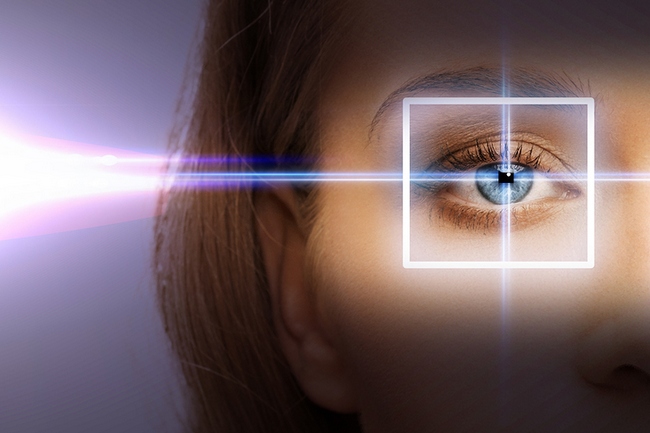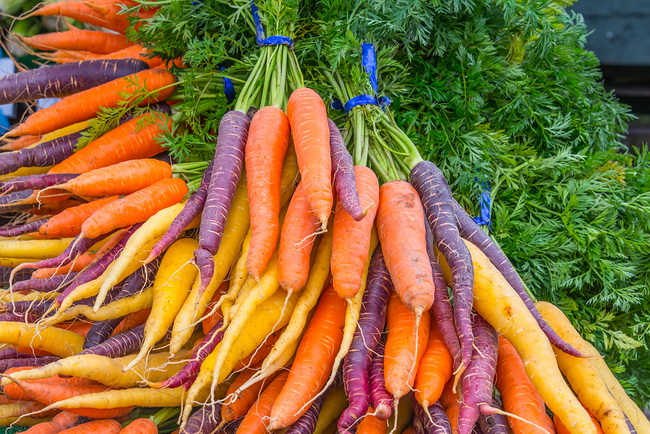- Make It Yourself Lavender Heart-Shaped Bath Bombs!
- 20 Things You Never Knew About “Down There”
- 12 Best Foods For Those Suffering From Arthritis Pain
- 12 Personal Hygiene Mistakes Almost Everyone Makes (Mom Never Told You About #4!)
- 15 Medicinal Plants And Herbs From The Cherokee People
- 12 Mind-Blowing Benefits Of Drinking Coconut Water During Pregnancy
- 12 Outstanding Winter Foods That Won’t Fatten You Up Like A Christmas Turkey
Best Foods and Vitamins For Healthy Eyes And Preventing Cataracts

Photo credit: bigstock.com
Our eyesight is one of our most important senses, yet, most of us take it for granted. It is only after we develop problems with our eyesight that we think of how to best care for it.
Although the exact cause of cataracts is still unknown research has suggested that free radicals, sometimes called oxidation, is to blame. Free radicals are, at least in part, a byproduct of our own bodies, much the same way that exhaust fumes are the byproduct of cars. Free radicals are also formed by toxic chemicals that are formed in the body after we have introduced or been exposed to environmental chemicals and toxins. As the pollutants in our air, food, and water increase, so do the free radicals that damage our DNA.
Oxidation has been shown to be at the root cause of every degenerative disease known to mankind including heart disease, cancer, and cataracts. Free radicals damage the enzymes and proteins in the eye lens, which can cause cataracts to form.
Think of your eyes as eggs. Heat would turn the clear whites opaque. This is what happens when free radicals are allowed to damage the structure of the lens. The normally clear lens of the eye turns a milky white, obstructing vision slowly and eventually, causing blindness.
If free radicals are the bad guys then think of antioxidants as the good guys in the white hats. Antioxidants neutralize or kill off free radicals before they can cause damage. The body cannot create antioxidants on its own, we must consume them through our diet.
Studies show that persons who have low levels of antioxidants in their bodies are at a much greater risk of developing cataracts.
Although cataracts used to be considered a disease of the elderly, more and more young people are developing this type of blindness due to very unhealthy diets and lifestyle habits. By consuming more healthy antioxidants, especially glutathione, the most important antioxidant of all, we can prevent cataracts and cataract surgery.
Besides an unhealthy diet and lack of antioxidants, other causes of cataracts and damage to the eyes come from:
- Genetic Disorders
- Diabetes
- Other Types of Disease
- Vitamin Deficiency
- Harmful Toxins (Such as mercury, tobacco, steroid, sugar, alcohol, and artificial sweeteners)
- Excessive Exposure to Sunlight
- Excessive Exposure to Glare from Computer Screens, Televisions, Etc.
Let’s look at some of the best foods and supplements you can take to protect your precious vision.
Continue to Page 2

Photo credit: bigstock.com
1. Fruits and Vegetables
Organic fruits and vegetables that are high in flavonoids and antioxidants are one of the best means of protection. Add more of the following to your daily diet:
- Grapes
- Strawberries
- Blueberries
- Bilberries
- Raspberries
- Blackberries
- Oatmeal
- Legumes
- Sweet Potatoes
- Pumpkins
- Pomegranates
- Carrots
- Pineapple
- Apples
- Kale
- Broccoli
- Spinach
- Collard Greens
- Brussels Sprouts
- Asparagus
- Tomatoes
Learn how to make your own tasty juices at home so you can mix these cataract fighting agents together in one easy glass! Try some mixes such as 5 carrots and 2 apples or 1 carrot, 1 apple, 1 tomato, and 1 cup of strawberries.
2. Herbs and Other Supplements
Some of the best “eye food” herbs and supplements are:
- Kelp
- Grape Seed Extract
- Capsicum
- Turmeric
- Wheat Germ Oil
- Spirulina
3. Vitamin E
This important vitamin has so many health benefits, it’s difficult to know where to start. It can protect your skin and eyes from the UV rays of the sun, it offers protection from prostate cancer, as well as Alzheimer’s disease. Vitamin E works as an antioxidant in the body, which fights off the damage that those bad guys, free radicals, cause. You need about 15 mgs of vitamin E each day. A great way to get your vitamin E on is to eat more foods like almonds, papaya, dark leafy greens like spinach, and sunflower seeds. Of course, you can always take a supplement but getting this vitamin from your food is a much better choice.
Continue to Page 3

Photo credit: bigstock.com
4. Beta-Carotene
This fat soluble vitamin is well-known for supporting healthy vision and protection from cataracts. You should consume foods high in beta carotene such as turnips, mustard greens, butternut squash, sweet potatoes, kale, and carrots with a bit of fat, such as butter, coconut oil, or nuts to help aid your body in absorbing this important vitamin.
5. Vitamin C
One of the most powerful antioxidants around, vitamin C helps to fight cataracts by slowing down the progression of this eye sight robbing disease. You need a minimum of 250mgs of vitamin C each day. Just 5 servings of fruits and veggies should give you at least 100 grams or more! Outstanding superstars in the vitamin C field are green chili peppers, green and red bell peppers, broccoli, guavas, papaya, kiwi fruit, Brussels sprouts and, of course, oranges.
SEE ALSO: The Best 12 Herbs to Keep Eyes Healthy and Disease Free
6. Zeaxanthin and Lutein
These antioxidant compounds are found in the yellow colors found in plants. Also known as xanthophylls, these types of pigments are also found in very concentrated levels in the lens of the eye. Although research has shown that zeaxanthin and lutein can prevent cataracts and support healthy eyes but the exact amount that the body needs is still unclear. Eat plenty of the following foods to be sure your body is getting as much as it needs to keep your eyes clear and bright:
- Eggs
- Green Beans
- Kale
- Collard Greens
- Spinach
- Turnip Greens
- Green Peas
- Corn
- Romaine Lettuce
- Carrots
- Broccoli
The American Optometric Association states that people should try to consume 5 to 6 mgs of zeaxanthin and lutein each day.
Although we can’t do anything about our genes, we can choose our diet each and every day. Make yours a healthy one filled with organic fruits and veggies not only for eye health, but for your overall well-being.
You can also protect your eyes by limiting the amount of time you spend in front of computer screens, television screens, and cell phones. Always wear UV blocking sunglasses when you are out in the sun as well for the ultimate eye protection.
References:
































